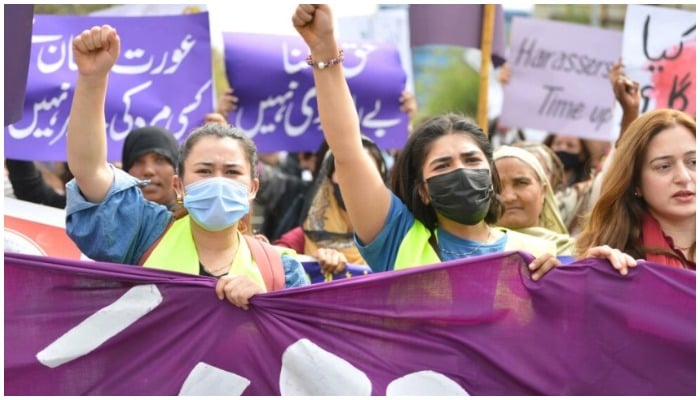
Today marks the 100th Anniversary of International Women's Day one of two Internationalist Workers Holidays begun in the United States. And it is one that recognized women as workers, that as workers women's needs and rights are key to all our struggles hence the term Bread and Roses.
Women have led all revolutions through out modern history beginning as far back as the 14th Century with bread riots. Bread riots would become a revolutionary phenomena through out the next several hundred years in England and Europe.
It would be bread riots of women who would lead the French Revolution and again the Paris Commune, led by the anarchist Louise Michel.
Bread riots occurred in America during the Civil War.
It would be the mass womens protest and bread riots in Russia in 1917 that led to the Revolution there. The World Socialist Revolution had begun and two of its outstanding leaders were Rosa Luxemburg and Clara Zetkin, both who opposed Lenin's concept of a party of professional revolutionaries leading the revolution and called for mass organizations of the working class. Their feminist Marxism was embraced by another great woman leader of the Russian Revolution; Alexandra Kollontai.
Women began the Winnipeg General Strike of 1919 by shutting down the phone exchange.
Women began the Winnipeg general sympathetic strike. At 7:00 a.m. on the morning of Thursday, May 15, 1919, five hundred telephone operators punched out at the end of their shifts. No other workers came in to replace them. Ninety percent of these operators were women, so women represented the vast majority of the first group of workers to begin the city-wide sympathetic strike in support of the already striking metal and building trades workers. At 11:00 a.m., the official starting point of the strike, workers began to pour out from shops, factories and offices to meet at Portage and Main. Streetcars dropped off their passengers and by noon all cars were in their barns. Workers left rail yards, restaurants and theatres. Firemen left their stations. Ninety-four of ninety-six unions answered the strike call. Only the police and typographers stayed on their jobs. Within the first twenty-four hours of the strike call, more than 25,000 workers had walked away from their positions. One-half of them were not members of any trade union. By the end of May 15, Winnipeg was virtually shut down.
Again it would be mass demonstrations of women against the Shah of Iran that would lead to the ill fated Iranian revolution.
Today with a food crisis due to globalization bread riots are returning.
When women mobilize enmass history is made.
March is Women's History Month, March 8 is International Women's Day (IWD), and March 5 is the birthday of the revolutionary Polish theorist and leader of the 1919 German Revolution, Rosa Luxemburg. It was Rosa Luxemburg's close friend and comrade, Clara Zetkin, who proposed an International Women's Day (IWD) to the Second International, first celebrated in 1911.Clara Zetkin, secretary of the International Socialist Women's Organization (ISWO), proposed this date during a conference in Copenhagen because it was the anniversary of a 1908 women workers' demonstration at Rutgers Square on Manhattan's Lower East Side that demanded the right to vote and the creation of a needle trades union.
The demonstration was so successful that the ISWO decided to emulate it and March 8 became the day that millions of women and men around the world celebrated the struggle for women's equality.
Actually, International Women's Day is one of two working class holidays "born in the USA." The other is May Day, which commemorates Chicago's Haymarket martyrs in the struggle for an eight-hour day.
Clara Zetkin
From My Memorandum Book
“Agitation and propaganda work among women, their awakening and revolutionisation, is regarded as an incidental matter, as an affair which only concerns women comrades. They alone are reproached because work in that direction does not proceed more quickly and more vigorously. That is wrong, quite wrong! Real separatism and as the French say, feminism à la rebours, feminism upside down! What is at the basis of the incorrect attitude of our national sections? In the final analysis it is nothing but an under-estimation of woman and her work. Yes, indeed! Unfortunately it is still true to say of many of our comrades, ‘scratch a communist and find a philistine’. 0f course, you must scratch the sensitive spot, their mentality as regards women. Could there be a more damning proof of this than the calm acquiescence of men who see how women grow worn out In petty, monotonous household work, their strength and time dissipated and wasted, their minds growing narrow and stale, their hearts beating slowly, their will weakened! Of course, I am not speaking of the ladies of the bourgeoisie who shove on to servants the responsibility for all household work, including the care of children. What I am saying applies to the overwhelming majority of women, to the wives of workers and to those who stand all day in a factory.
“So few men – even among the proletariat – realise how much effort and trouble they could save women, even quite do away with, if they were to lend a hand in ‘women’s work’. But no, that is contrary to the ‘rights and dignity of a man’. They want their peace and comfort. The home life of the woman is a daily sacrifice to a thousand unimportant trivialities. The old master right of the man still lives in secret. His slave takes her revenge, also secretly. The backwardness of women, their lack of understanding for the revolutionary ideals of the man decrease his joy and determination in fighting. They are like little worms which, unseen, slowly but surely, rot and corrode. I know the life of the worker, and not only from books. Our communist work among the women, our political work, embraces a great deal of educational work among men. We must root out the old ‘master’ idea to its last and smallest root, in the Party and among the masses. That is one of our political tasks, just as is the urgently necessary task of forming a staff of men and women comrades, well trained in theory and practice, to carry on Party activity among working women.”
Bread and Roses
As we go marching, marching, in the beauty of the day,
A million darkened kitchens, a thousand mill lofts gray,
Are touched with all the radiance that a sudden sun discloses,
For the people hear us singing: Bread and Roses! Bread and Roses!
As we go marching, marching, we battle too for men,
For they are women's children, and we mother them again.
Our lives shall not be sweated from birth until life closes;
Hearts starve as well as bodies; give us bread, but give us roses.
As we go marching, marching, unnumbered women dead
Go crying through our singing their ancient call for bread.
Small art and love and beauty their drudging spirits knew.
Yes, it is bread we fight for, but we fight for roses too.
As we go marching, marching, we bring the greater days,
The rising of the women means the rising of the race.
No more the drudge and idler, ten that toil where one reposes,
But a sharing of life's glories: Bread and roses, bread and roses.
Our lives shall not be sweated from birth until life closes;
hearts starve as well as bodies; bread and roses, bread and roses
SEE:
IWD: Raya Dunayevskaya
IWD Economic Freedom for WomenWater War
Feminizing the Proletariat
Find blog posts, photos, events and more off-site about:
Womens, Liberation, International, Womens, Day, feminism, microcredit, Africa, India, poverty, March8














